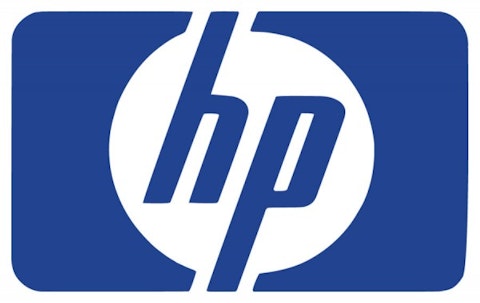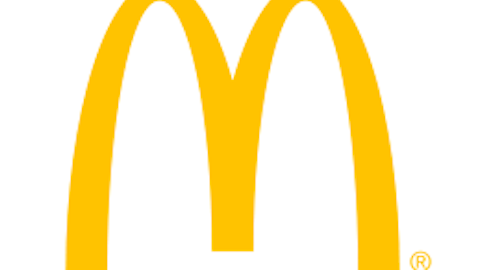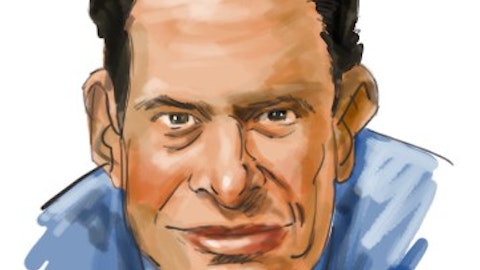The Dow Jones Industrial Average (INDEXDJX:.DJI) was one of the modern world’s first market indicators. Today the price-weighted index is comprised of 30 large publicly-owned companies based in the United States. Year-to-date the blue chip index has returned 11.02% to shareholders, while the S&P500 has returned 16.03% and the NASDAQ has returned 21.98%. Since 1900, the average annual return for the Dow was 9.4%, 4.8% in price appreciation and 4.6% in dividends. The past 25 years the Dow returns have averaged 10.5% annually, 7.7% price appreciation and 2.7% in dividends. Moving in to the third quarter of 2012, the Dow has beaten both the 100+ year average returns and the 25 year average. This article will examine the bottom three performers on the Dow Jones Industrial Average.
Hewlett-Packard Company (NYSE:HPQ)
Hewlett-Packard has been the worst performer on the Dow year-to-date. The personal computer company has lost 29.15% of its stock value since the start of 2012. The combination of phones, tablets, increased competition, and poor economic conditions have hurt PC sales for Hewlett Packard (See if Hewlett-Packard can compete with Apple and Google). Looking at its valuation, the company is trading at 0.30 times sales, only one-third of their five year average P/S of 0.9. Moreover, the PC company has an EV/EBITDA of 3.92.
Hewlett has grown revenues at a five year compound annual growth rate (CAGR) of 6.8%, but they have had a disappointing 2012 thus far. Revenues have declined and expenses as a percentage of revenue have gone up. Both SG&A and R&D have increased, causing operating and profit margins to compress. The PC company plans to combat any lost sales by penetrating the growing tablet market with a focus on the niche business class market. If HP can fill an unmet need for tablets and laptops in the business niche, it can continue to be a major player in the tech sector.
McDonald’s Corporation (NYSE:MCD)
With a year-to-date return of -7.23%, McDonald’s is the second worst performing stock on the Dow. The largest fast food restaurant faces strong headwinds that may adversely affect its financial health going forward. Austerity measures in Europe, higher commodity costs in the U.S., and slowing growth in Asia all leave investors unsure about McDonald’s ability to grow.
From a valuation standpoint, McDonald’s trades at a 17.1 times their earnings, and has an EBITDA multiple of 10.45. McDonald’s has grown revenues at a five year compound annual growth rate (CAGR) of 4.6%, they have an ROA of 15.87%, and an ROE of 37.93%. McDonald’s has been a successful and growing fast food restaurant for years, and with strong partnerships with franchisees and suppliers, enormous size and scale, and a solid understanding of their customers’ wants and needs, McDonald’s could rebound in the back half of 2012 (See if mergers and acquisitions are in the horizon for McDonalds).
The Boeing Company (NYSE:BA)
Sitting better than only McDonald’s and Hewlett-Packard on the Dow, The Boeing Company’s stock price has shrunk 3.95% year-to-date, the third worst return among companies listed. Investors are uncertain about the about the impact the proposed European Aeronautic, Defense & Space – the parent company of Airbus SAS – acquisition of BAE Systems will have on Boeing. If the acquisition goes through, the new entity would become a larger threat to Boeing and would have a better presence in the U.S.
Other looming threats to Boeing include substitutes arising in their commercial segment and government spending cuts impacting their defense segment. Substitutes in their commercial segment can be brought to light looking at their new Boeing 737 Max plane. The 737 series are known for being the best selling airliners in the history of aviation, and are shorter, lower-cost planes. The Airbus A320neo was released roughly one year before the Boeing 737 Max. This has given the A320 a healthy head start in front of the 737.
Looking at the valuation, Boeing trades at 12.18 times their earnings and has a 6.82 EBITDA multiple. Boeing has grown revenues at a five year compound annual growth rate (CAGR) of 2.2%. They have an ROA of 5.05%, and an ROE of 81.60%. Boeing’s backlog has grown to more than 4,000 planes, and the air travel business is picking up. They sold more planes in the past quarter (ending June) than over the same time last year, and are regaining market share from Airbus. Boeing had a rough takeoff for 2012 and has been hitting turbulence ever since, but they have strong products and a sturdy brand name that should help them remain an aircraft powerhouse in the industry.
What does the hedge fund industry think?
The value of Hewlett-Packard shares held by hedge funds increased nearly $220 million during the second quarter of 2012. The increase in value of HPQ held by hedge funds occurred in spite of six hedge funds liquidating their shares of HPQ. Hedge funds also didn’t like the taste of McDonald’s in their portfolios. While five hedge funds dropped MCD stock during the second quarter of 2012, the total value of MCD held by hedge funds increased by $230 million.
Looking at Boeing, 32 hedge funds owned shares of the airplane developer in both the first and second quarter of 2012. The value of the shares held by the funds decreased $40 million during the second quarter of 2012. Taking into account that there hasn’t been a drastic shift in hedge fund holdings for the three worst blue chip stocks listed on the Dow, we expect one of two things: (1) that funds don’t want to sell their shares at bottomed out prices, or (2) they believe that a turnaround is in store for the remainder of 2012. For a complete look at the hedge fund industry’s sentiment toward these stocks, continue reading here.




